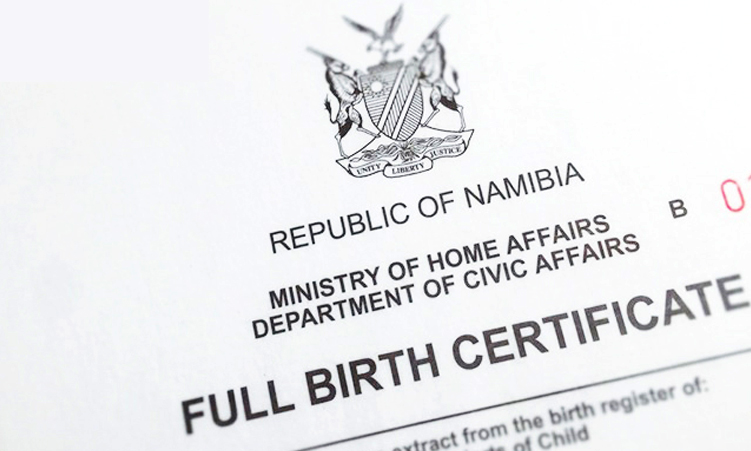The Ministry of Home Affairs, Immigration, Safety and Security has urged mothers to register their newborn babies even if the babies’ fathers are not present.
This comes after the ministry has noted with concern an increasing number of people visiting the ministry to acquire birth certificates, including elderly people.
Ministry spokesperson Margaret Kalo says such babies will be registered under their mothers’ surnames.
“Once the father decides to show up at a later stage or so, the ministry will insert the father’s particulars on the child’s birth certificate,” she says.
Kalo says the government will continue to prioritise birth registration as a key component of its development agenda, and invest in the necessary infrastructure, human resources and policies to ensure every child is registered at birth. “At the same time, the ministry will continue to address the underlying socio-economic and cultural factors that contribute to late birth registration, and work towards creating an enabling environment that supports timely birth registration,” she says.
Kalo says while these efforts have contributed to a higher birth registration rate, more still needs to be done to ensure every child is registered immediately after birth. “The introduction of the electronic birth notification system in 2017 has assisted greatly in ensuring that details of the child’s birth and those of the mother are recorded,” she says.
Kalo says late birth registration is attributed to a variety of factors, such as the absence of one or both parents and ignorance.
Other factors include cultural and traditional practices that prioritise other social rituals over the registration of a child’s birth.
There may also be socio-economic factors, such as poverty, migration and conflict that contribute to the delay in registration, she says.
DID YOU KNOW?
In Namibia, the Births, Marriages and Deaths Registration Act, regulates the notification, registration and certification of vital events such as births, marriages, and deaths.
According to Kalo, the act requires births to be reported to the ministry within 14 days after they occur.
She says when a birth is registered after the expiry of one year, registration is regarded as late, “ and would only be registered after the written authority of the executive director after certain requirements have been met”.
Registration is considered timely if done within 12 months of a birth.
CONSEQUENCES
Kalo says late birth registration results in legal “invisibility”, adding that it also poses a significant challenge to the effective provision of services. “Children whose births are not registered immediately after birth and whose parents may wish to register them for medical aid, may not be able to do so, thus excluding them from accessing private healthcare,” she says. She says children whose births are not registered may be excluded from essential services and benefits, leading to a lifelong cycle of poverty and marginalisation.
“Such children may also be vulnerable to exploitation, abuse and trafficking as their lack of legal identity makes it difficult for them to access protection and justice,” Kalo says.
The ministry urges parents to register their babies immediately after birth (up to 12 months) at any hospital or ministry office.
“The ministry is also urging those who, for some reason, are not registered but have the right supporting documents, to approach the nearest office of the ministry to register their births,” Kalo says.
Stay informed with The Namibian – your source for credible journalism. Get in-depth reporting and opinions for
only N$85 a month. Invest in journalism, invest in democracy –
Subscribe Now!






